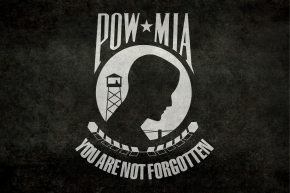The Army invests a lot of effort into crafting leaders that can take our sons and daughters into the most dangerous and austere environment and win. This requires a leader that is well rounded and capable of making monumental decisions without all the information and with the lives of his or her Soldiers on the line. Being able to send your Soldiers into harm’s way requires attributes that are not present in all people. Finding these attributes and elevating those who possess them is how the Army has become the best. The Army does this through annual evaluations which focus on 6 different attributes with several sub categories. Over the next few weeks #HeavyLeadership will break down the attributes of leadership as the Army sees it and provide the private sector a glimpse into the system that separates the good from the great. Stay tuned for more blogs on this topic and enjoy the first installment on character.
Character (Adherence to Army Values, Empathy, and Warrior Ethos/ Service Ethos and Discipline.)
The character of a leader is not easy to describe. This speaks to the soft skills that are difficult to train. Character of a person sets the stage for every decision that is made. When an executive sits in a board room contemplating the ethics of their business with her staff, character is what keeps them on the side of ethical and moral business. Many examples where businesses lost their way can be traced to a leader or group of leaders that had questionable character. The army starts with character and builds from there. The first step in a leader with character is the core values that they live by.
- Loyalty: Bear true faith and allegiance to the U.S. Constitution, the Army, your unit and other Soldiers
- Duty: Fulfill your obligations.
- Respect: Treat people as they should be treated.
- SelflessService: Put the welfare of the nation, the Army and your subordinates before your own.
- Honor: Live up to Army values.
- Integrity: Do what’s right, legally and morally
- PersonalCourage: Face fear, danger or adversity (physical or moral).
Though these values are not universal across the private sector they are a benchmark for what a Soldier should be and something all should strive for in their life. The Army believes these values are the foundation that all Soldiers build their career upon. Ironically, the acronym to remember these values is LDRSHIP.
Empathy
There are countless experts that will describe how empathy is critical to an effective leader. In the Army, the empathy required is a different level. Soldiers under a leader’s command go through personal and professional challenges that require the most focused and diligent commitment you can imagine. How do you approach an employee who is scared to maneuver on a known enemy strong point and destroy them? Do you push them with a strong hand? Do you admit that you are scared too, but ensure they know you are with them and will be when they need help? Do you cut through the fear with a joke? Being able to put yourself in your team’s shoes and understand the emotional side of what they do is critical. Can you think through the emotions around a divorce even if you have never been through it then apply them in a way that makes your employee feel like you are by their side?
These skills come with time and coaching but there is a side of empathy that requires an abstract thought process. You must remove yourself from your current state and place yourself in someone else’s shoes. It is not a skill that comes naturally and not all can do it. A truly successful leader can.
Warrior Ethos
The Army has an ethos that all live by; “I will always place the mission first, I will never accept defeat, I will never quit, and I will never leave a fallen comrade.”
This is a promise to all you lead that you will put your all into the organization and, more importantly, the people within it. This ethos is a pact, a promise to the rest of the Army that regardless of what happens, I will be there for you and I will be there to help get the job done. This is what makes a hero charge into an onslaught of bullets to pull a fallen  comrade back to safety. Its why the Army will dedicate every available hand to find a lost Soldier on foreign land. This is why the government worked for years to get Bowe Bergdal back from Taliban-aligned Haqqani network in Afghanistan and Pakistan even though he, at the time allegedly, abandoned his post and deserted his peers. The military invests thousands of hours and dollars to repatriate the remains of Prisoners of War and Missing in Action Soldiers from previous conflicts and will continue to do so until they all come home. The Army is bound by this Ethos and at some level it gives its members some comfort in knowing someone is always coming for them regardless of the situation. Its fundamental to what we do.
comrade back to safety. Its why the Army will dedicate every available hand to find a lost Soldier on foreign land. This is why the government worked for years to get Bowe Bergdal back from Taliban-aligned Haqqani network in Afghanistan and Pakistan even though he, at the time allegedly, abandoned his post and deserted his peers. The military invests thousands of hours and dollars to repatriate the remains of Prisoners of War and Missing in Action Soldiers from previous conflicts and will continue to do so until they all come home. The Army is bound by this Ethos and at some level it gives its members some comfort in knowing someone is always coming for them regardless of the situation. Its fundamental to what we do.
This Ethos transcends beyond the combat zone and into Soldiers personal lives. The leaders in the Army are committed to being there when a Soldier needs help at home. Soldiers battling Post Traumatic Stress Syndrome (PTSD) can reach out to their leaders for help at any time and leaders are given tools through training and resources to get them help. Leaders take a personal role in the lives of their Soldiers and through that, there is trust that they will be there when they are needed. Can you say that you will do that for your employees? Will you be there when they need it and do you have the true trust of your employees?
Discipline
One of the things you think of when you think of a Soldier, discipline is not gained easily. Discipline is a level of self-control that is not regularly found. The Army goes to great lengths to make sure Soldiers possess the discipline to stand in formation at attention, or to stay awake during a guard post when they could easily go to sleep and never get caught. It is having the courage to do the right thing. That discipline is a requirement for leaders who must not only enforce it but show it when they are standing watch with their Soldier or facing a decision on the ethical right decision verses the easy and less moral wrong. A leader does the right thing when no one is watching. In reality, someone is always watching and when you sacrifice your morality in front of your employees, you lower the standard for operations.
Many do not think of character when they define a leader but without it, there is nothing to stand on. A core set of values and morality are critical to an effective leader. Ask yourself how you are viewed by your team. Are you the leader that you would follow? Are you someone that earns respect through the moral actions that you do every day even when no one is watching? Do you care for your employees and understand the challenges they are going through? If so, then you are on the right path.
